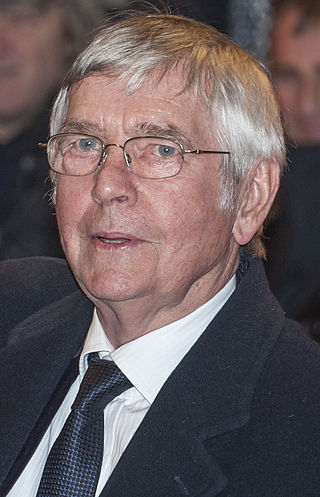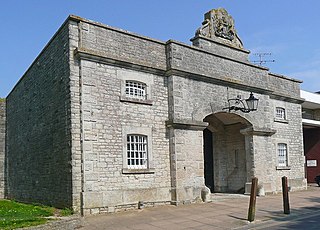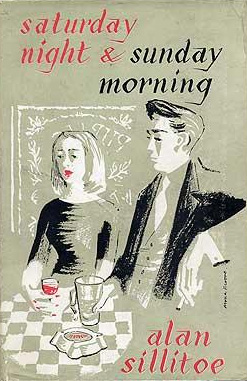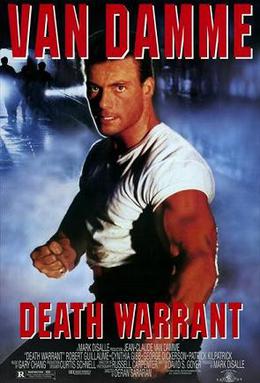Plot
The film opens with Colin Smith running, alone, along a bleak country road somewhere in rural England. In a brief voiceover, he says that running is the way his family has always coped with the world's troubles, but that, in the end, the runner is always alone and cut off from spectators, left to deal with life on his own.
Colin is then shown with a group of other young men, all handcuffed. They are being taken to a borstal (a detention centre for juvenile offenders) named Ruxton Towers, where the inmates live in a series of Nissen huts with no privacy. The institution is overseen by the Governor, who believes that the hard work and discipline imposed on his charges will ultimately make them useful members of society. Sullen and rebellious, Colin immediately catches the Governor's eye as a test of his beliefs.
An important part of the Governor's rehabilitation programme is athletics, and he soon notices that Colin is a talented runner, easily able to outrun Ruxton's reigning long-distance runner. The Governor is especially keen on Colin's abilities because, for the first time, his charges have been invited to compete in a five-mile cross-country run against Ranley, a nearby public school with privileged pupils from upper-class families, and he sees the invitation as an important way to demonstrate the success of his rehabilitation programme.
A former runner himself, the Governor takes Colin under his wing, promoting him from dismantling scrap to performing light gardening work, and eventually giving him the freedom to do solo practice runs outside Ruxton's barbed-wire fences. On these runs, Colin reflects on his life before he was incarcerated. His family lived a difficult, poverty-stricken life in a prefab in a lower-class district of industrial Nottingham. The jobless Colin indulged in petty crime with his best friend, Mike, while, at home, his father's long years of toil in a local factory resulted in a terminal illness.
When Colin's father refused treatment and died, Colin was left as the family's breadwinner, but he flatly refused a job offered to him at the factory where his father worked. The company paid out a paltry £500 in insurance money, and Colin watched with disdain as his mother quickly spent it all on extravagances. Colin symbolically burned some of his portion of the insurance money and used the rest to treat Mike and two girls they met to an outing in Skegness, where Colin confessed to his date, Audrey, that she was the first woman he ever had sex with.
Colin got in an argument with his mother's lover about who was the man of the house, and his mother told him to leave until he could bring home some money. He and Mike took to the streets, and they spotted an open window at the back of a bakery. They climbed in and stole the cashbox, which contained about £70 (equivalent to £1,600in 2021). Mike wanted to take another trip to Skegness with the girls, but Colin was more cautious and hid the money in a drainpipe outside his house. A surly detective soon showed up and accused Colin of the robbery, but he told the man that he did not know anything about it. The detective later searched the house, but found nothing. Finally, frustrated and angry, the detective returned on a rainy day to say he would be watching Colin, and, as the two stood at the front door, the torrent of rainwater pouring down the drainpipe dislodged the money, which washed out around Colin's feet.
At Ruxton Towers, Colin must contend with his fellow inmates' envying him the favouritism shown to him by the Governor, and he does not like being perceived as "the Governor's blue-eyed boy". He is especially troubled when Mike is sent to Ruxton Towers for stealing a car and, surprised by Colin's status, asks him whose side he is on.
The day of the race against Ranley arrives, with Colin and Gunthorpe, Ranley's star runner, seen as the favourites. Colin eventually overtakes Gunthorpe and gains a comfortable lead, but, as he nears the finish line, the imagery that has been flashing through his mind becomes progressively jarring. He remembers his mother's neglect; his father's dead body; the taunts of his fellow inmates; stern lectures from the detective, the Governor, and Audrey. Just yards from the finish line, Colin stops, unmoved by the calls and protests of the Ruxton Towers crowd. He smiles defiantly at the Governor as Gunthorpe passes him and crosses the finish line to victory. Disappointed, the Governor walks away.
Some time later, Colin is back dismantling scrap, now ignored by the Governor.
Analysis
Alan Sillitoe was part of the group of writers labeled the "angry young men", who produced media depicting the plight of rebellious youth. The film depicts Britain in the late 1950s and early 1960s as an elitist society in which upper-class people enjoy many privileges, while lower-class people suffer a bleak life, and portrays the borstal system of delinquent youth detention centres as a way of keeping working-class people in their "place". The characters are entrenched in their social context, and class consciousness abounds throughout. The "them" and "us" notions that Richardson stresses reflect the basis of British society at the time, and Redgrave's "proper gentleman" of a Governor is in stark contrast to many of the young working-class inmates.
Sillitoe's screenplay can be interpreted as either tragic or bathetic by ultimately projecting the protagonist as a working class rebel, rather than an otherwise rehabilitated, but conformist talent. During the period when Sillitoe wrote the book and screenplay, the sport of running was changing. The purity of running was taken away when Smith entered the race for his own and his institution's benefit, becoming a commodity useful for his patrons' own promotion. [7] Sillitoe rejects the commoditisation of running in his book and screenplay, believing instead that a professional becomes commercialised and loses the clarity of thought that comes with running otherwise, which is why Smith chooses to forfeit the race. Literary critic Helen Small stated that "the weight of literary attention seems to be focused on a 'pre-professional era' — either written at that time or looking back at it for inspiration", her research stressing that Sillitoe was an author who believed in the unadulterated sport.
Running is also used as a metaphor to give Smith the ability to escape from the reality of his class level in society. [7] The use of this sport gives Smith the ability to escape from his life as a member of the working-class poor. Sillitoe used running to give his character a chance to reflect upon his social status, and also to escape from the reality that the poor in Britain are faced with. [7] Long-distance running gives the character an ability to freely escape from society without the pressures of a team, which may be found in other athletic stories. [7]















